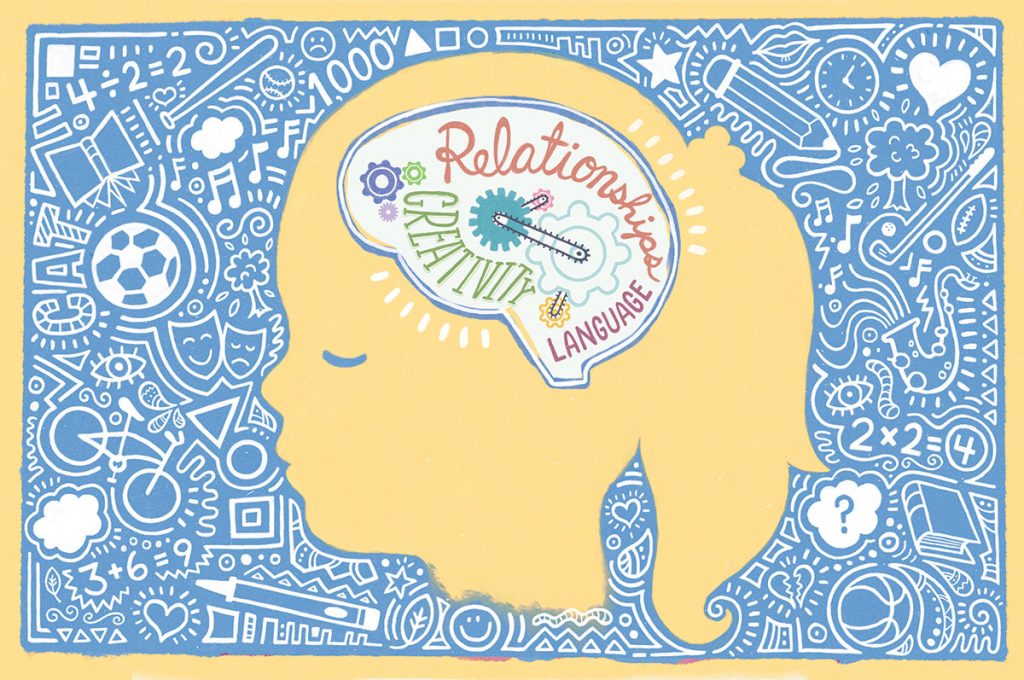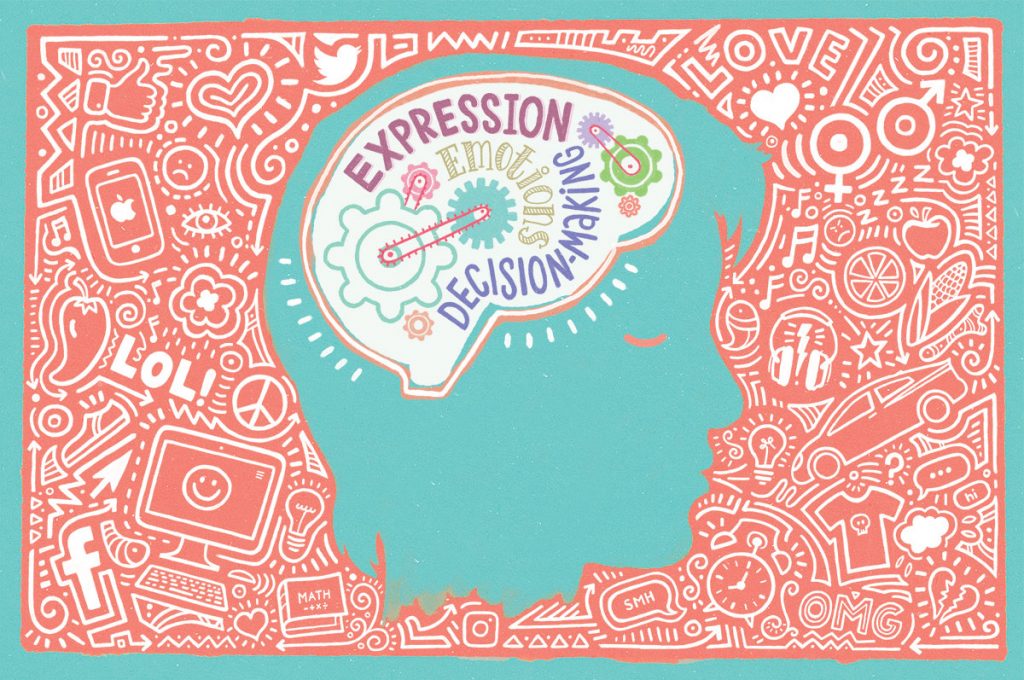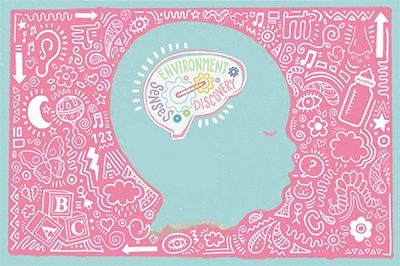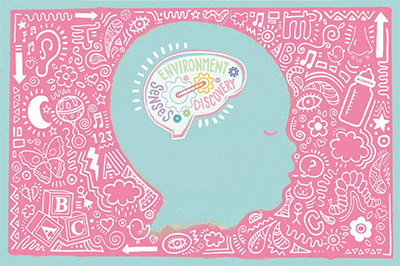When we think of the mind of a child, we may assume it is less developed than the adult mind. However, a child’s brain is a lot more complex than we may think. When a baby is born, his/her brain is already packed and ready to go. Their minds are prepared to learn and take in all the information from their surroundings. By only five weeks after conception, cells divide rapidly to form the 100 billion or so neurons that the baby will have at birth. This may come as a surprise, but kids are actually born with all the brain cells they’re going to have!
“The way babies learn to talk is particularly fascinating. The work of Roberta Michnick Golinkoff, author of “How babies talk,” and others show that their verbal activity isn’t random but that babies essentially behave like scientists in figuring out how to develop language,” says Dr. Cargill Alleyne, Director of Neurosurgery Vascular Service at Augusta University Health.
It all comes down to how often the brain cells are used. The brain development process from birth to adolescence is such a crucial time for children to work their brains and promote healthy growth, as they will carry basically everything they learn from this period into adulthood.
Infancy- Ages 0-3
During this age, the brain has up to twice as many synapses (connections where messages pass through) as it will have in adulthood. Relationships, experiences and environment are strong factors that influence development.
- Parts of the brain that control basic survival and reflexes are almost fully developed.
- Hearing and vision become more developed.
- The power of recognition and language is dramatically improved.
- Cognitive flexibility and a better understanding of cause and effect develop more fully.

During early to middle childhood, motor skills are refined to learn more complex tasks. Interpersonal experiences develop into social skills that the child will maintain through adulthood.
Early-Middle Childhood- Ages 4-11
This stage of development is considered to have the most “windows of opportunity” because connections are being made in the brain at the most rapid rates.
- Pruning (strengthening connections that are used regularly and getting rid of useless information) takes place and is a key process in shaping development.
- Genes and experience work together to shape the developing brain.
- The emotional and physical health, social skills and cognitive-linguistic capacities that emerge in the early years are the foundations for future success in school, the workplace and in the larger community.

At adolescence your child’s brain reaches it’s adult size. However conflict resolution skills, emotions and behaviors are still being developed.
Adolescence- Age 12-18
During adolescence, the brain goes through its most dramatic growth spurt, reaching its adult weight around the age of 14. Most of the pruning process takes place during this stage.
- Increased activity in the frontal lobes takes place: the area that controls important cognitive skills such as emotional expression, problem solving, memory, language, judgment and sexual behavior.
- Capability of insight, judgment, inhibition, reasoning and social conscience increases.
- The parts of the brain involved in emotional responses are more active than in adults.
- Lifestyle choices, such as sleeping, eating breakfast, stress habits, directly affect cognitive development.
While the entire development process has been scaled down to the very basics, it’s important to know that healthy diets and living are just a few factors that impact a child’s brain development. Make sure your child has lots of opportunities to exercise his/her cognitive and relationship building skills with hands-on experiences and is exposed to self-esteem building interactions with others.
The Children’s Hospital of Georgia has the largest team of general pediatricians, adolescent medicine physicians and pediatric specialists in the Augusta area. CHOG offers pediatric neurological care for children with acute and chronic neurological and developmental disorders, as well as neurodegenerative and metabolic disorders. For more information about CHOG, visit our website at augustahealth.org/chog or call 706-721-KIDS (5437).
Sources: Better Brains for Babies, Harvard University, Center for Disease Control, National Institute of Mental Health, Purdue University, U.S. National Library of Medicine, The Urban Child Institute, ZERO TO THREE





